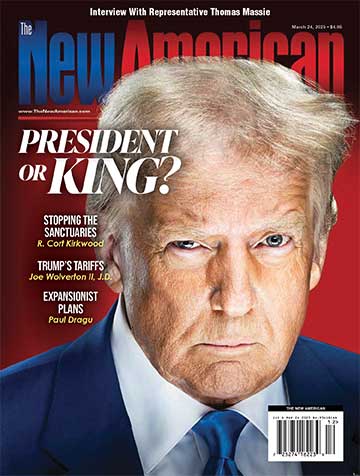
Argentina is at a crossroads, and the result of the presidential election there could have major ramifications in the rivalry between the United States and China.
Following the Argentine presidential election on October 22 — which triggered a pending runoff between the top two candidates because no candidate won enough votes to win the presidency outright — defeated candidate Patricia Bullrich, leader of the center-right coalition, endorsed Javier Milei, a libertarian and leader of the country’s burgeoning dissident right coalition.
Milei came in second place, with 29.98 percent of the vote, while Bullrich came in at 23.8 percent. In first place was socialist Economy Minister Sergio Massa (who has presided over inflation rates of 140 percent), at 36.68 percent. The runoff election will take place next month, and the winner will assume the presidency on December 10.
Following the results of the election, Milei, who leads the Liberty Advances coalition of dissident right (“far right,” according to the mainstream media) parties, invited Bullrich and her supporters to join together to defeat Kirchnerism, the left-wing style of politics that has dominated Argentina for years and is practiced by current President President Alberto Fernández.
“The campaign made many of us who want change see each other in a confrontation, that is why I am here to end this process of aggressions and attacks,” said Milei. “I am willing to make tabula rasa, shuffle and start anew, to end Kirchnerism.”
He added, “Beyond our differences, what we have to understand is that before us we have a criminal organization that will leave no barbarity uncommitted to stay in power. Kirchnerism is the worst thing to happen to Argentina.”
At a press conference on Wednesday, Bullrich spoke of the need to join forces against the Left.
“The majority of Argentines chose change. We represent part of that change. We have the obligation not to be neutral. We believe that we have to join forces,” said Bullrich.
“In the case of Javier Milei, we have differences, and that’s why we competed. We don’t overlook them. However, we are faced with the dilemma of change or the continuation of a mafia-style governance for Argentina and putting an end to the shame of the present.”
Currently, Bullrich serves as president of the Republican Proposal (PRO), which was one of many parties in the center-right JxC (Juntos por el Cambio, or “Together for Change”) coalition. The coalition is led by former President Mauricio Macri, who sources say organized a meeting between Milei and Bullrich at his own home. Macri served from 2015-2019, elected thanks to the JxC coalition, but lost his reelection bid in 2019 to Fernández.
However, some of those comprising JxC have not hopped aboard the Milei bandwagon, and Bullrich emphasized in her endorsement that she was speaking on behalf of herself and her team, not for JxC as a whole.
Horacio Larreta, the mayor of Buenos Aires and a potential JxC presidential candidate, said publicly that, despite Bullrich’s remarks, he would not be supporting Milei.
“Now, beyond that, if I believed in his [Milei] ideas I would support him,” said Larreta. “The problem is that he is not good for the country. That is why I cannot support a candidate who hurts Argentines.”
Likewise, the center-left Radical Civic Union party, part of JxC, also stated it would not get behind Milei or Massa and would instead maintain a “position of neutrality.”
In a joint interview with Milei on Wednesday, Bullrich defended her decision to endorse the Liberty Advances leader:
What we did was to set the objective that we believe the country needs, which is that there should be a deep change, a change in the economic and social matrix, in Argentina’s standard of living and for that we chose to be with those who were the part of the change that got the most votes.
… In JxC, the decision was made to have freedom. In the framework of that freedom, in the framework of a representativeness that we have, because we won a [open primary] PASO and we are the most representative of JxC because we won a PASO against Horacio [Larreta], Gerardo Morales, Lousteau, we legitimized ourselves.… In the framework of a divided opposition, which historically has been bad, Liberty Advances got six points more than us.
Under Fernández, Argentina has been working out a program of defense integration with China that would involve the Latin American country buying Chinese military vehicles and fighter jets and even engaging in an exchange of military personnel with Beijing.
Milei has said he would pull back from the country’s recent friendliness with China, vowing to “not promote relations with communists.”
“Our fundamental bases are free trade, peace, freedom, and aligning ourselves with the West, where the top references in this for us are the U.S. and Israel,” Milei told Bloomberg. Asked about trade with Beijing, the presidential contender responded, “Well, they will be commercial partners in the private sector. We don’t make deals with communists.”
“I would not promote relations with communists — not with Cuba, not with Venezuela, not with North Korea, not with Nicaragua, not with China,” he added.





